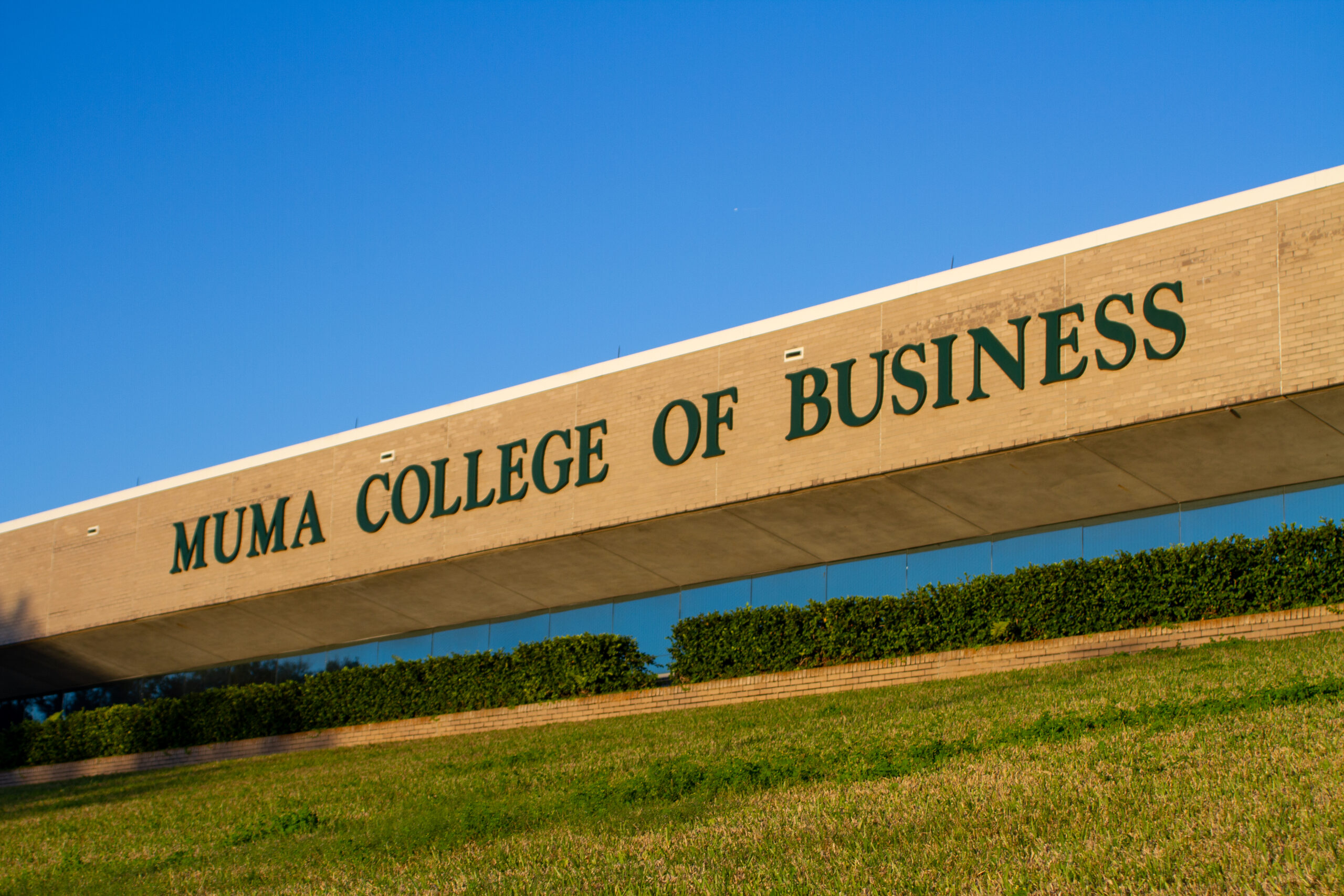Muma College of Business introduces FinTech|X Accelerator Program

The Muma College of Business’ new FinTech|X Accelerator program is expected to promote innovation within the field of financial technology, or fintech, by providing resources, mentorship and investment advising to a cohort of 16 national and international startup companies.
FinTech|X Accelerator was introduced April 11 as part of a larger three-year initiative between USF and local nonprofit Tampa Bay Wave, Inc. to stimulate growth within Tampa and St. Petersburg’s fintech industries, according to Director of Fintech Michael Diemer.
“What’s happening in Tampa Bay right now is historic … there is no shortage of companies and thought leaders who are moving here because of the hyperdrive load of creativity, innovation and collaboration that is happening,” Diemer said.
“With a strategic focus on helping students, faculty, the business community and fintech entrepreneurs … we will lead with success and positively impact the rapidly emerging and increasingly prominent fintech driven market sectors.”
Fintech encompasses the transition of finance toward automation, according to the Corporate Finance Institute. It includes the study of blockchain and delivery of traditional banking services through technology.
Companies selected for the Accelerator will undergo a 90-day experiential period, where Diemer said they will be able to access advice from leaders within the industry, sales and pitch training and meetings with venture capitalists.
Selection of applicants was conducted primarily by Tampa Bay Wave, Inc. However, Deimer said a preferred requirement recommended by USF was diversity. Three of the startups selected are headed by women, and many others involve members of the LGBTQ community, minorities and military veterans.
Many of the startups selected for the program are located outside of Florida and five are in various areas abroad, including Ireland, England, Saudi Arabia, Germany and Israel.
Participants will conclude the program June 29 with a collaborative group session to reflect on lessons they learned during their time and pitch their companies to investors. Those chosen from the session will have the opportunity to receive extended support from Tampa Bay Wave, Inc. through the Virtual Core Program, according to Diemer.
Mentorship and resources provided to participants in the Virtual Core Program will be similar to those offered during the Accelerator. However, Diemer said members will continue to be able to receive annual support from the university and associated sponsors.
It was essential for the College of Business to propose opportunities for students when envisioning a future for fintech in Tampa, according to Diemer. He said X|Accelerator is planned to be accompanied by expanded course offerings for undergraduate business students and the establishment of a FinTech Center on the St. Pete campus.
“It’s completely inconceivable to think about a student graduating with a business degree nowadays without a basic understanding of financial technology,” he said.
“We’re looking to hire global leading staff, offer internship opportunities with a fintech firm, bring fintech experts into the classroom and imbue the curriculum with many other ways to engage student experience.”
The first cohort will be composed of various entrepreneurs from finance and corporate sectors, including businesses such as Wells Fargo, Huntington Bank and PNC. They also achieved brand deals with various fintech industry giants, including Lyft, Doordash and Paypal.
Given the rapidly advancing nature of the fintech industry upon both an international and local scale, the Fintech|X Accelerator program will be essential in promoting diversity and representation among companies, creators and the student body, according to Diemer.
“Fintech involves multidimensional, multidiscipline challenges with no one simple fix, and it takes people from every aspect of life to succeed and be involved in these spaces,” he said. “It takes a big thoughtful approach to be inclusive to all people that want to be in these spaces … and that’s where we see the value of our students and their potential to enact change.”







